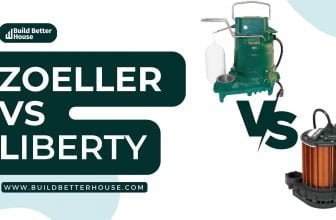Sewer Smell In The Basement? Why It’s Happening & How To Fix It

You might know all too well how unpleasant it can get when there’s a sewer smell in the basement. However, you don’t need to worry since you can follow some handy things to prevent the terrible smells from returning.
We’ll take you through some of the best ways to deal with the sewer smell in the basement you may choose from and finally say goodbye to the sewer smell!
Sewer smell in the basement: Causes
There are a few frequent sources of sewer smell in the basement, and most of them have simple solutions to prevent rotten eggs and sewer smell in the basement!
A clogged drain is the most prevalent source of sewer smell in the basement. Basement floor drains employ a trap with little water to keep smells inside sewage systems. If the web dries out, smells will enter the basement and the rest of the house.
Issues with your sump pump, ejector pump, basement toilet, water heater, or vents might also cause the sewer smell in the basement.
Perform a routine maintenance check on each piece of equipment; if the rotten egg and hydrogen sulfide smell intensify, you may have discovered the source of the problem!
Sewer smell in the basement: During rain
It is uncommon for sewer smell to appear from the floor drain and stink up the house when it rains. This is caused by a shift in air pressure, which causes the air to become heavy and descend – and the sewer smell in the basement rises from the drain pipe to take its place.
After a heavy rainstorm, your sewer system may emit an awful rotten egg smell due to the unpleasant smell being driven upwards by water and drawn down the lines.
Rain can also cause organic matter in the pipes that are degrading to emit distinct aromas; however, if you have a u-shaped sewer trap with a water trap, you can keep the sewer smell in the pipes.
Sewer smell in the basement: During cold weather
The sewage smell in the basement is more likely to increase in cold temperatures and winter months. Ice can cause drain lines to crack and a sewage smell in the basement to rise into the home via the plumbing vent.
Another issue occurs during the winter when small animals create a home in the sewer pipe, clogging the line and allowing a foul smell to enter the residence.
Frozen systems add another layer of complications, leading to a sewer smell in the basement. Frozen pipes can burst and clog, necessitating sewer system replacement or, if possible, only defrosting if you don’t want sewer smell in the basement and water damage.
Ways to tackle sewer smell in the basement
Getting rid of a basement sewer smell is simple, and you won’t need to call a professional plumber. If you follow these easy steps, your home will smell normal again:
Keep it dry and clean
The first step in preventing sewer smell in the basement is to keep it dry. Because moisture and bacteria flourish in humid conditions, keeping your basement as dry as possible can help reduce the number of bacteria in the air. To accomplish this, keep the basement clean, especially after any flooding accidents.
Try not to leave any leaks unattended for too long, as this can encourage the spread of bacteria! You should also ensure that your basement has adequate ventilation, which will help reduce dampness.
Open the windows
Opening the windows is another fantastic approach to eliminating the sewer smell in the basement. This can help reduce humidity in your basement while providing some fresh air to help with the scent.
This will also allow you to keep track of any flooding in your basement, which will help it to stay dry.
Open the windows whenever possible, and ensure nothing is blocking the vents! If you have a flood-prone basement, ensure the floor is adequately elevated to avoid standing water.
Use vent fans and exhaust systems
If you have a lot of water in your basement, you should consider installing a ventilation fan or an exhaust system. Ventilation fans, which can be wall-mounted or ceiling-mounted, draw air out from the basement.
Exhaust systems, on the other hand, direct air from a central area via the top of your home. Whatever method you opt for, make sure of adequate exhaust ventilation.
Other tips to get rid of sewer smell in the basement
The sewer smell in the basement is a sign that there is something wrong with your plumbing system. You may not be able to get rid of the sewer smell in your basement, but you can do multiple things to reduce or neutralize the smell from your basement. Let us take a look at some ways in which you can curb the smell from your basement:
- Maintain your yard and landscaping
Since overgrown plants and shrubs can cause sewer line obstructions, seal off crawl spaces and other basement entry sites. This will prevent insects and other pests from entering your cellar, reducing the scent; that’s why you should maintain your yard and landscaping.
- Hire a plumber
If your home’s sewer pipes become clogged, you can hire a plumber to clear them. However, be cautious when hiring a contractor; you don’t want to choose someone who would do damage to your sewer lines!
- Maintaining your septic tank and sewer lines
The septic tank is your basement’s first line of defense against sewer smell in the basement. If you want to avoid future basement smells, ensure your septic tank is properly maintained.
- Routine cleansing
Depending on where you reside, your septic tank may need to clean every year. If you don’t, the drain may become plugged. When this occurs, garbage cannot be adequately digested, resulting in a sewer smell in the basement.
You may get rid of the sewer smell in the basement by adhering to these tips and being aware of the factors that contribute to the smell.
Wrapping up
The key to preventing sewer smell in the basement is to keep the area as dry and clean as possible. Try to keep your basement from getting too humid, and keep it clean and tidy.
You should also ensure you’re maintaining your septic tank and sewer lines and keeping an eye on your lawn and landscaping to ensure nothing is clogging your sewer lines. With these tips, you can keep the sewer smell out of your basement and enjoy spending time there.
Read more:
Water Bubbles on the Ceiling – How to Fix It?
Fluidmaster vs Korky: Which Toilet Replacement Is The Best?
How Much Does Backflow Testing Cost? The Ultimate Guide
Sprinkler Backflow Preventer Leaking- How To Fix?
Sump Pump Weep Hole Installation: Complete Step-By-Step Guide
Pump Installation: Complete 9-Step Process For Beginners






